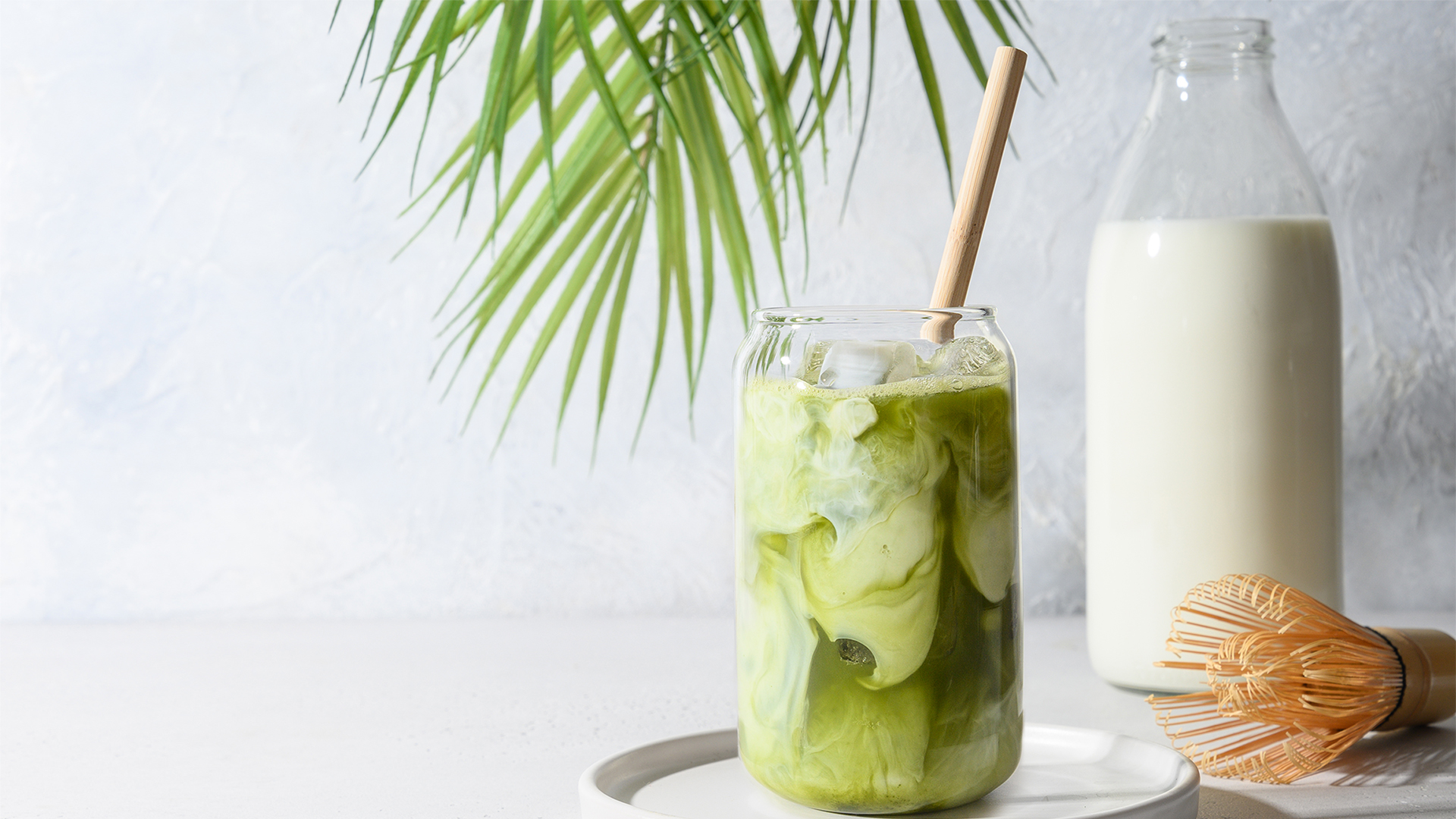
If you’ve seen someone walking out of your local Starbucks with a bright, leafy green-colored drink in hand, then the matcha craze has found you. In coffee shops and cafes across the country, customers are swapping their cappuccinos, cold brew coffees, and English breakfast teas for matcha, a green tea powder that’s been popular in East Asia for centuries. Yet despite its long history, matcha is having a bit of a moment right now. With a vibrant color that lands somewhere between “pistachio ice cream” and “freshly cut grass” on the color wheel, matcha is a picture-perfect beverage beloved by Instagram darlings and tea aficionados alike.
Matcha has a long and storied history that can be traced back to China’s Tang Dynasty (618–907), but it’s probably best known for its role in traditional Japanese tea ceremonies, where it is prepared carefully, presented respectfully, and served hot. Today though, you’re likely to see matcha served in a number of different and creative ways. If you’re ordering it from your local barista, you might enjoy a matcha latte served hot (complete with decorative white and green latte art) or cold over ice. Matcha is also frequently used in cooking and baking, where it lends its vivid hue to cakes, smoothies, and mochi.
View this post on Instagram
The production of matcha is a labor of love, and quality can vary greatly. Factors like plant condition, leaf location, and grinding method all impact the caliber (and price) of matcha, and the highest-grade products retail for over $1 per gram. Officially, there are three different classifications for matcha: ceremonial grade, premium grade, and culinary grade. Most retailers, however, drop the middle category and sort products as either ceremonial grade or culinary grade. Taste-wise, matcha has a vegetal, "green" flavor that often leans a little bitter, but high-quality ceremonial matcha can be smooth, nutty, and even creamy.
Whether you’re a seasoned matcha tea pro or eager to learn more about the famous green powder, there’s likely a matcha subscription that’s right for you. Only want the good stuff? Some subscriptions specialize in top-quality matcha and will send ceremonial grade tea to your doorstep like clockwork. Other subscriptions are great for sampling a variety of different products. In the following list, you’ll find a selection of options separated by category.
Ceremonial Grade Matcha
Matcha subscriptions come in a variety of different shapes and sizes, and it's important to break them down by category. Let's start with the best of the best matcha, and explore a couple of subscriptions that specialize in the finest stuff on the market, ceremonial grade.
Breakaway Matcha
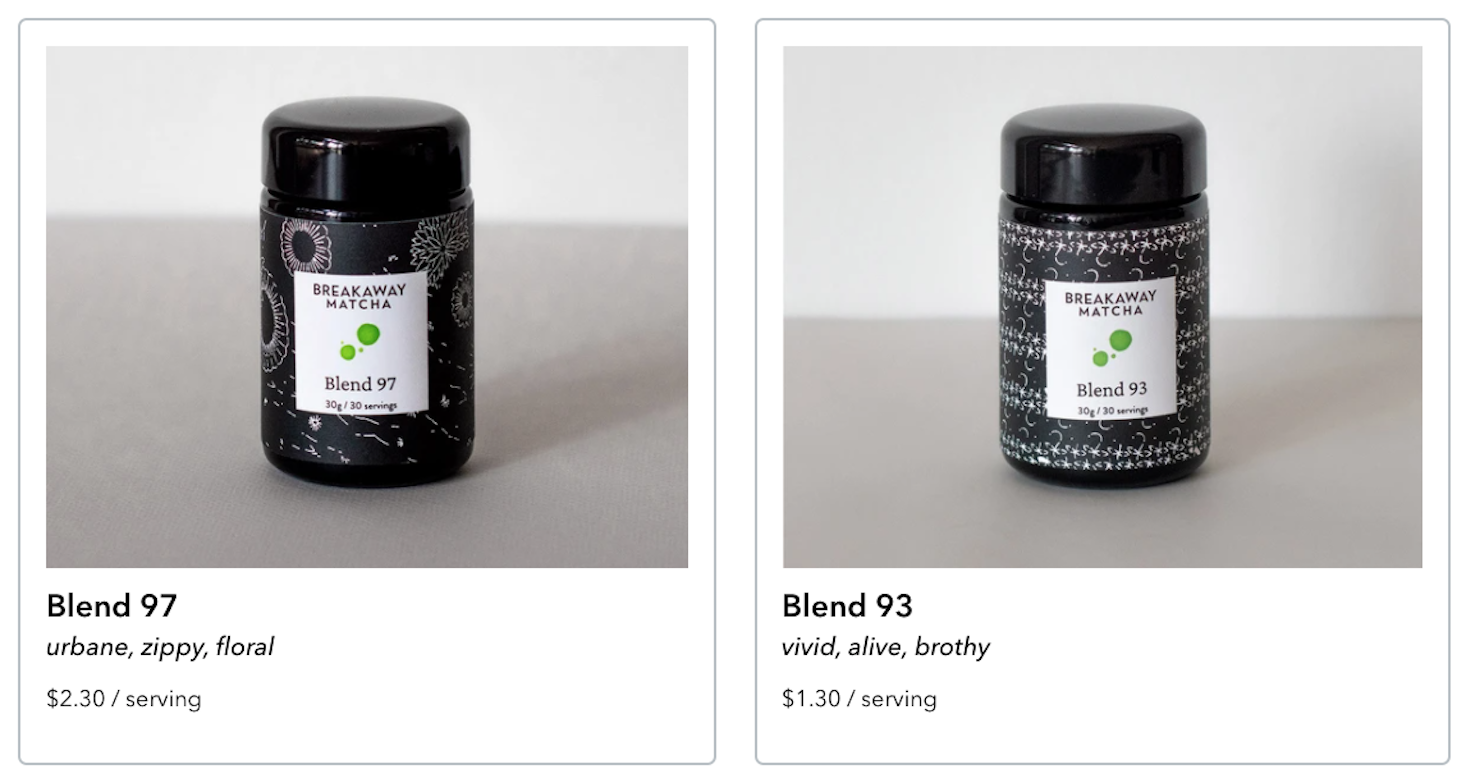
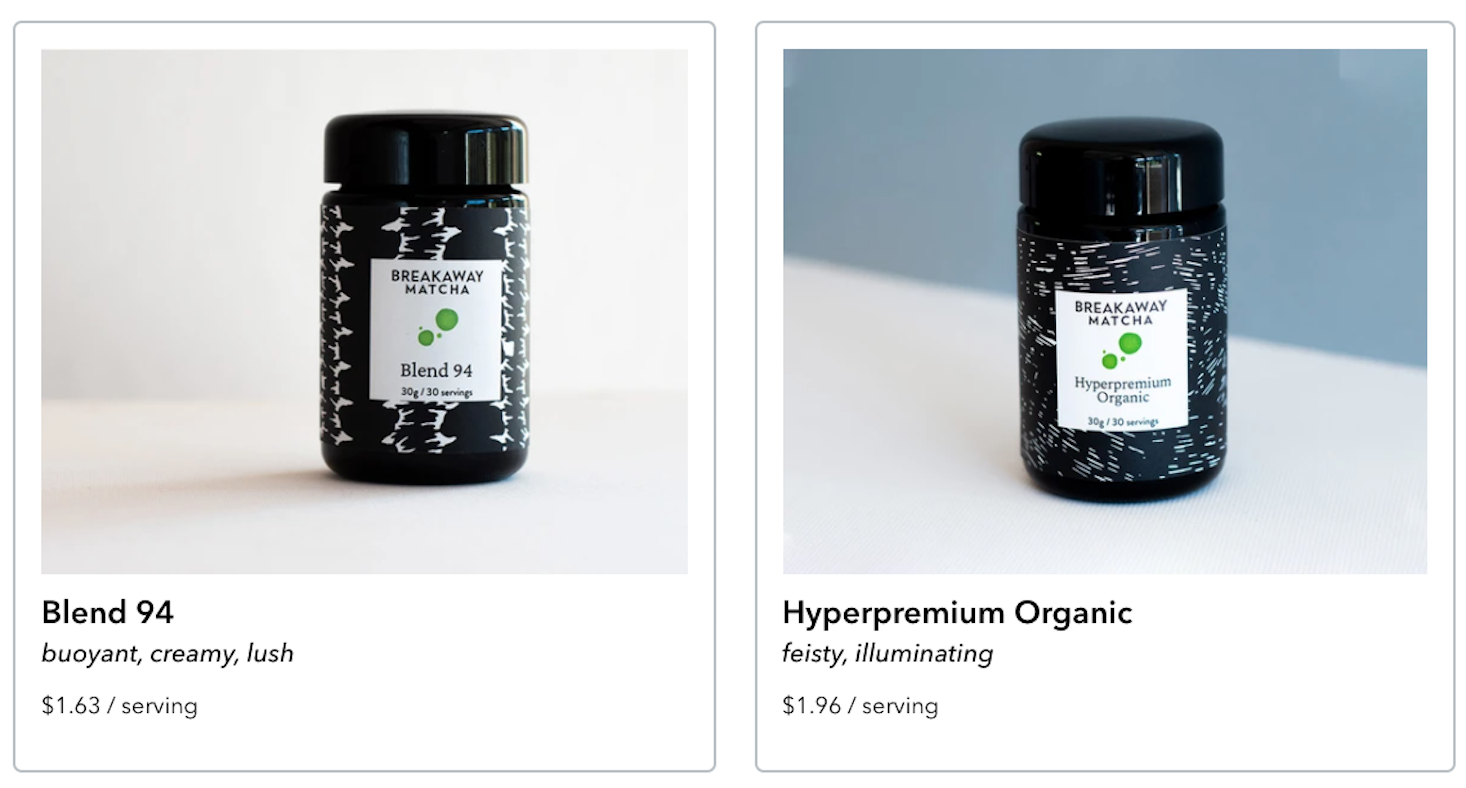
Images via Breakaway Matcha.
Breakaway specializes in "hyperpremium" matcha, and there are a dozen different blends to choose from. The different teas range in price from $1.30 per serving all the way up to $6.96 per serving, and you can check out flavor descriptions and customer reviews for each one. When you checkout, you'll be given the option to set up recurring shipments at a delivery schedule of your choosing. Not sure which one to pick? Breakaway offers a selection of matcha flights ($36-$113.00) so you can sample different blends before going all-in with a subscription.
Encha Ceremonial Grade Pure Organic Matcha

Image via Encha.
Encha simplifies things by only offering two products: Ceremonial Grade Matcha and Latte Grade. It takes a lot of confidence to only offer a single high-grade option, and there's a reason behind that choice:
After being disappointed with ceremonial matcha powder sold in the US in 2014, Encha's Founder, Li Gong (Stanford Ph.D. 2001), took a research journey to discover organic matcha farms in Uji, Nishio, and Shizuoka, Japan. This is the best organic Japanese matcha that he found, in terms of color, taste, USDA organic certification, and overall quality.
By working directly with local farmers, Encha is able to bypass any middlemen and offer their matcha at a surprisingly affordable price. As a one-time purchase, 30 grams costs $22.95 and 60 grams costs $41.95; however, you'll save 18% with a recurring subscription. (Encha Ceremonial Grade Matcha is also available from Amazon.)
Culinary Grade Matcha
If you're new to matcha, can't stomach the thought of paying "truffle prices" for tea, or want to use matcha in baked goods or smoothies, culinary matcha is probably the way to go. Here are two of my favorites:
Jade Leaf Culinary Matcha
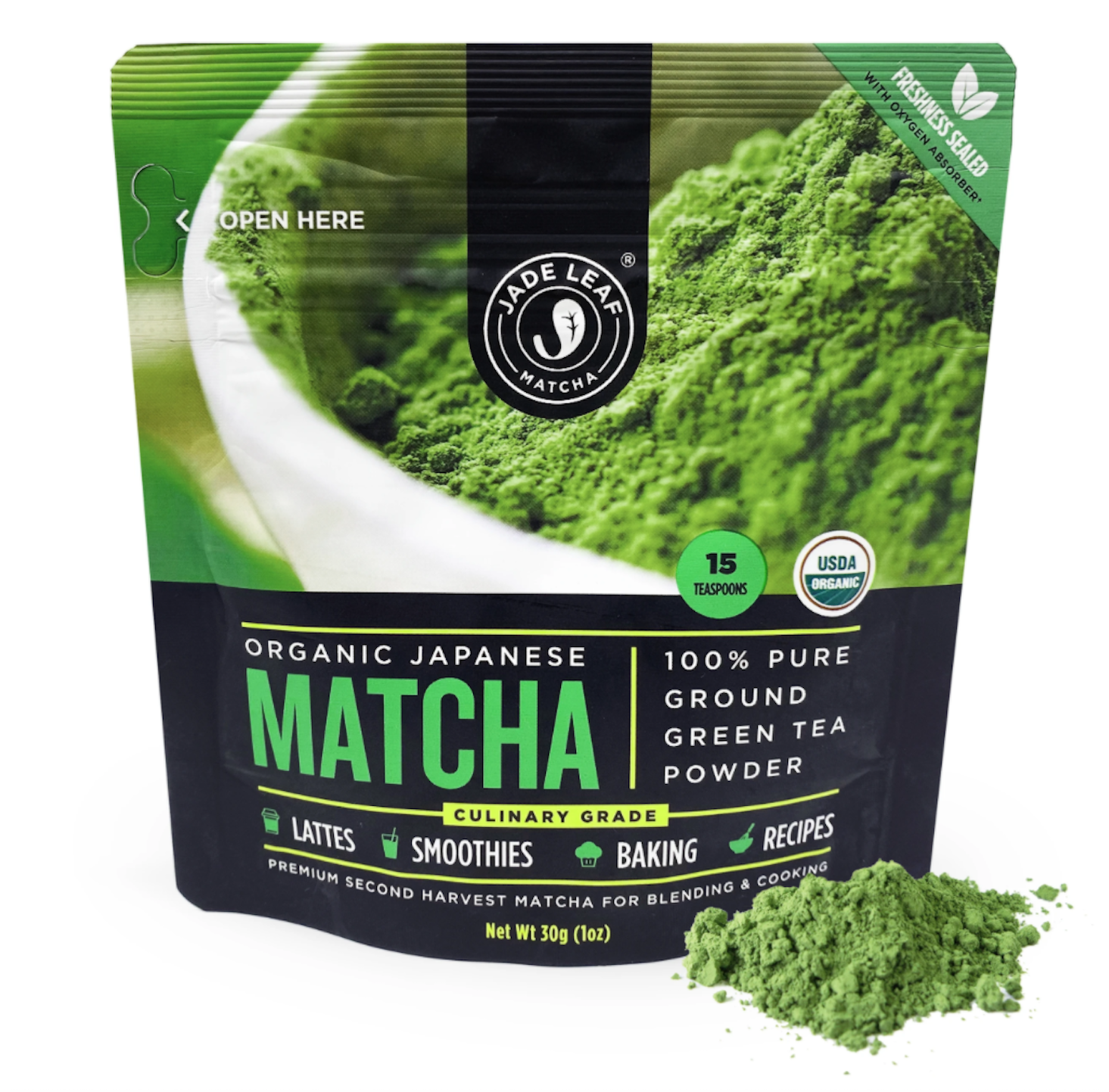
Image via Jade Leaf.
"Culinary matcha" is a bit of a misnomer; yes, it's a great product to use in cooking and baking, but you can drink it too. In fact, culinary matcha is still very high-quality tea. The flavor is often bolder and less nuanced than its ceremonial grade cousin, but that's not necessarily a bad thing. It shines through milk, making it great for matcha lattes, and it holds up to fruit and other ingredients, so it's an ideal choice for smoothies. Jade Leaf's Culinary Matcha is well-rounded and delicious, and it comes in a resealable pouch that's very handy. There are a number of different sizes to choose from, and you can save on them all with a subscription. The smallest pouch contains 30 grams of matcha for $9.95 (subscribe & save 5%), and the largest size available is a 1 pound bulk bag that goes for $59.95 (save 10% with a subscription).
David's Tea
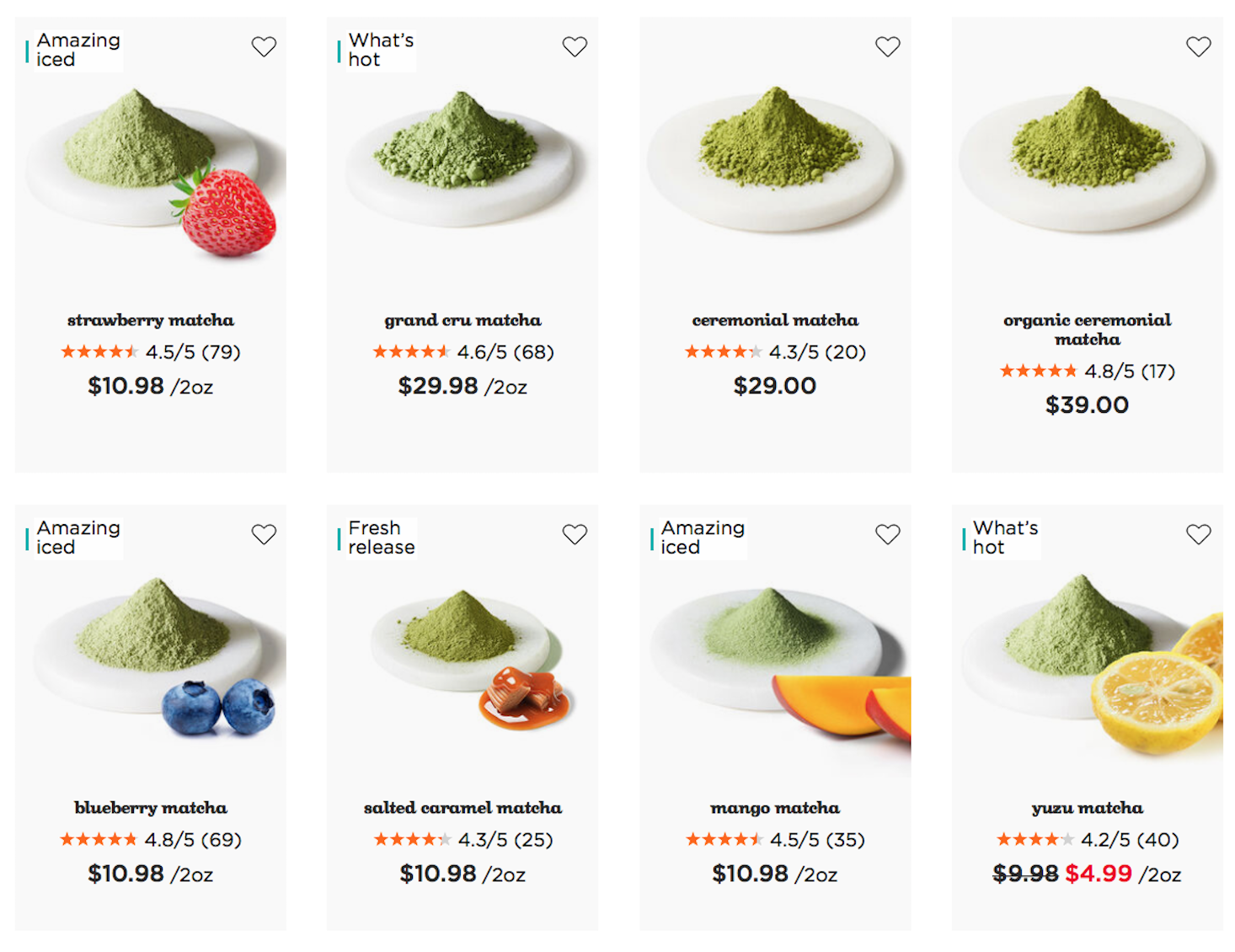
Image via David's Tea.
David's Tea is home to North America's largest selection of matcha, and they offer a range of traditional and flavored varieties. From Mango Matcha to Orange Dreamsicle Matcha, the options are creative, enticing, and perfect for non-purists who prefer their tea with a bit of an oomph. (Is it any surprise that a company known for blending tea leaves with all kinds of fruits, foods, and flavorings has taken the same approach to their matcha?) David's Tea does not currently have a matcha-centric subscription program; however, they do have a subscription box that features a broad range of teas from their wide selection. The Tea Tasting Club ships quarterly, costs $35 per box, and includes up to 8 blends per box + additional goodies.
Other Matcha Subscription Options
Not sure where to start? Or looking for a subscription that's a little bit more fun? Matcha doesn't have to be super serious. Check out these options that will have you tying on your barista apron and dancing around the kitchen:
Matchabar Starter Kit
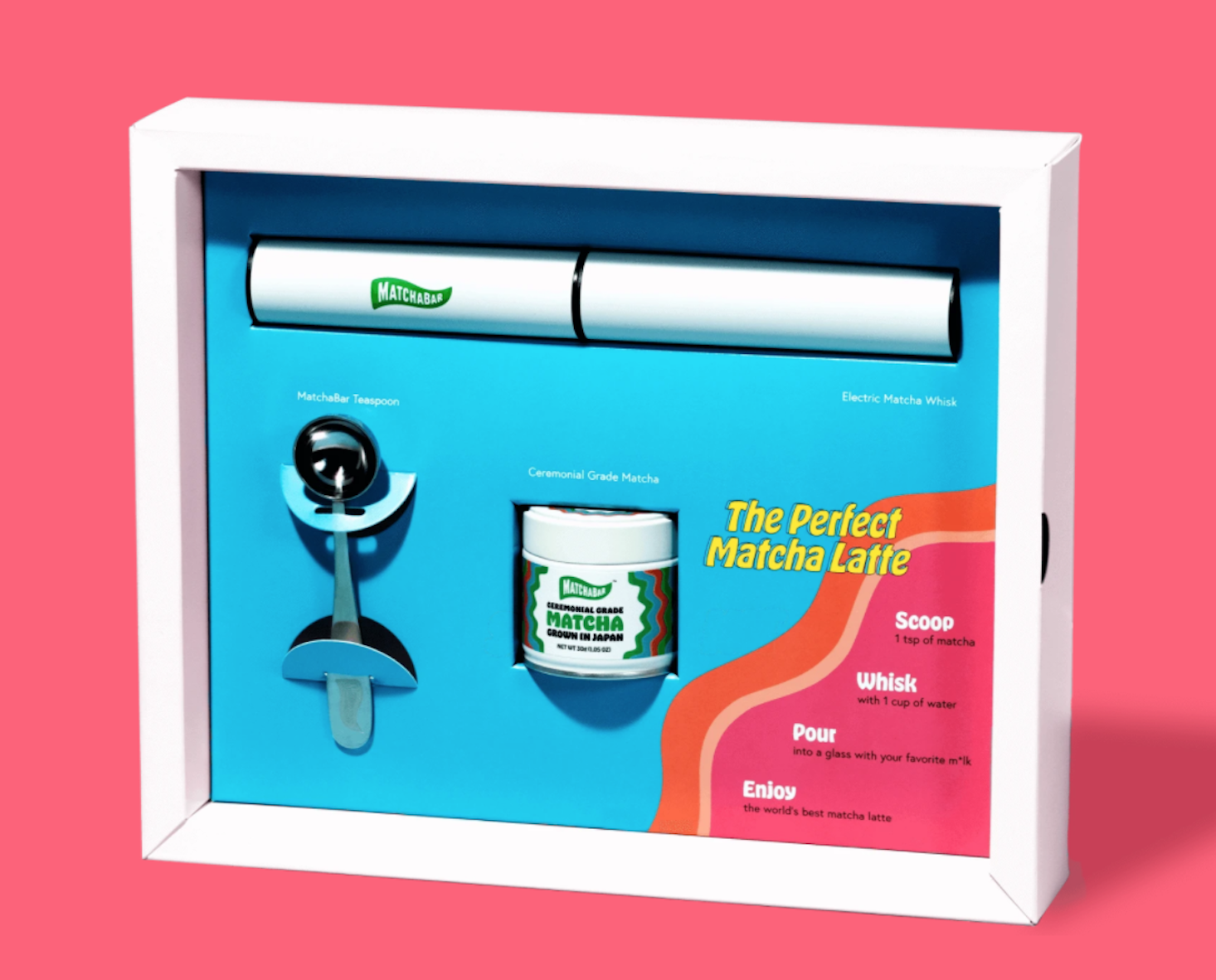
Image via Matchabar.
With a playful attitude and bold neon packaging, Matchabar puts the "fun" in "funky green tea drink." This $54.99 kit includes everything you need to start making matcha at home, a 30 gram tin of ceremonial grade matcha, a teaspoon, and an electric whisk. Full disclosure: this starter kit is not a subscription item, but it's a great first order to get a handle on some matcha basics before signing up for recurring shipments. Matchabar's teas are all available by subscription, and you can even sign up to receive regular deliveries of their highly-rated, canned matcha energy drinks.
Ippodo Tea Matcha Sticks
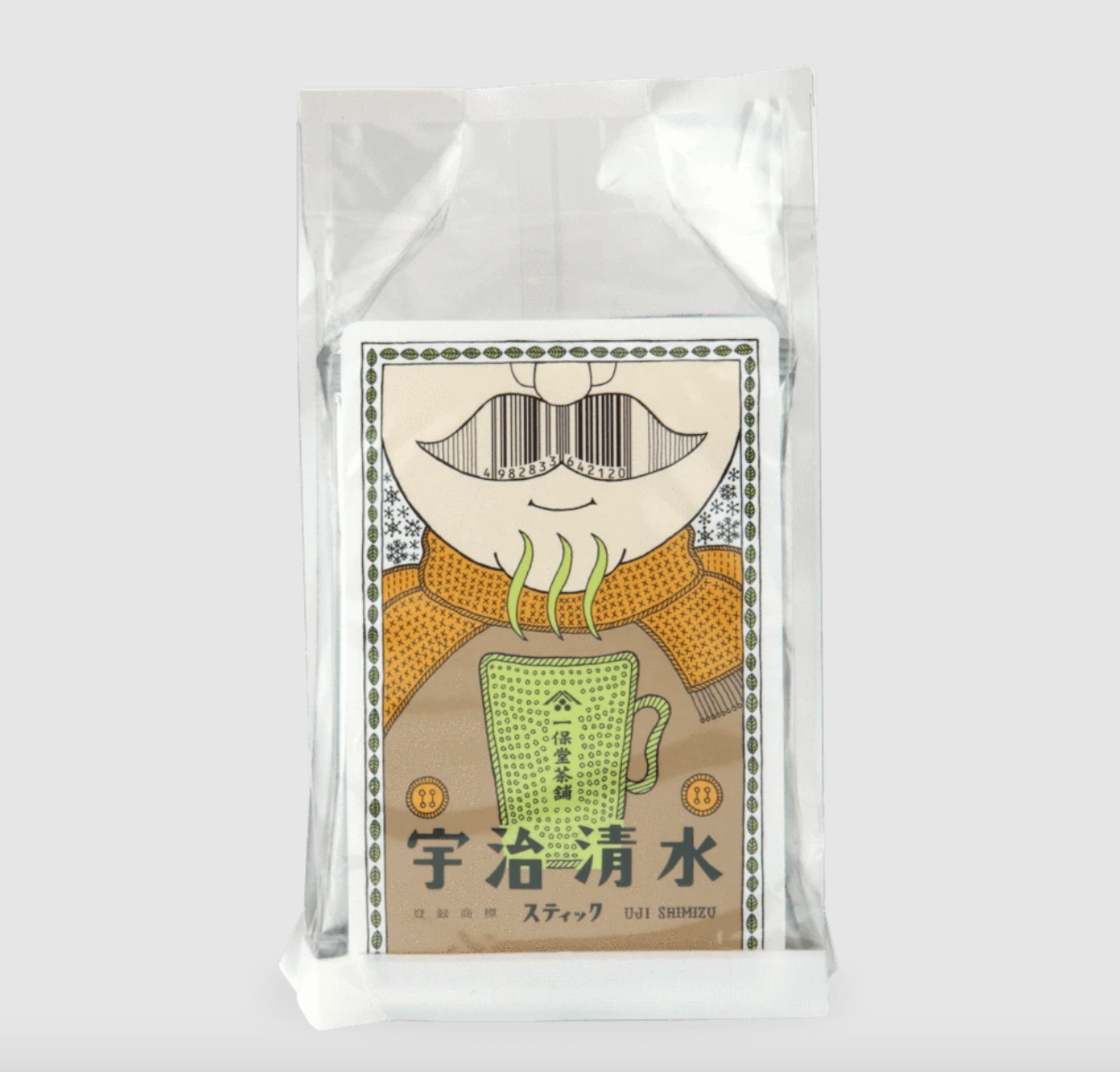
Image via Ippodo.
Ippodo Tea offers a wide selection of very delicious (and very serious) high-quality matcha, but they also sell Uji-Shimizu, an in-house blend of matcha and sugar that comes packaged in portable single-serving sticks. These individually portioned servings of tea can be mixed with milk or water to make a satisfying and comforting beverage on the go, and the packaging is downright delightful. If you tend to order your matcha with an extra shot of syrup, these matcha sticks might be just your speed. A package of 12 sticks costs $18.00, and you can sign up for a recurring subscription at checkout. (You can also buy on Amazon.)
Tea Drops Deluxe Boba Kit
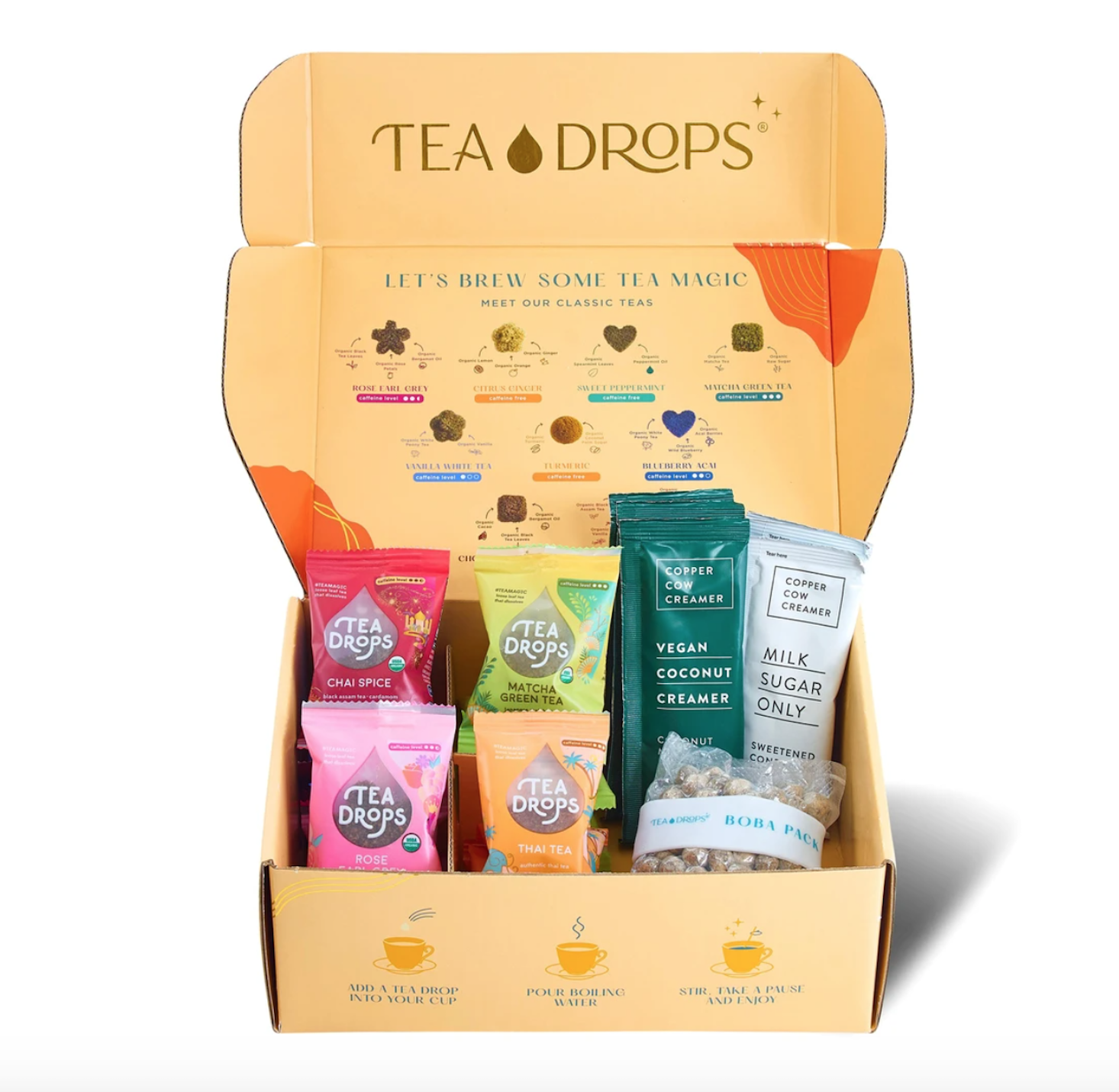
Image via Tea Drops.
If your favorite kind of matcha comes with tapioca pearls and a gigantic straw, check out this DIY boba kit from Tea Drops. For $45.00, this kit includes 16 tea drops, 6 sweeteners from Copper Cow (check out our Copper Cow review here!), and 100 tapioca pearls. You'll receive the following varieties of tea:
- Rose Earl Grey
- Chai Spice
- Matcha Green Tea
- Thai Tea
- Turmeric
- Chocolate Earl Grey
Know that this is the kind of kit you don't want to live without? Sign up for a subscription, and you'll save 10% on every shipment.
Have you tried any of these matcha subscriptions? Or do you have a favorite we didn't mention? Head to the comments section and let us know!
Learn About Other Tea & Coffee Subscriptions
Want to find out about other Tea & Coffee options? Check out these additional pages to learn more:
- The 15 Best Coffee & Tea Subscriptions – 2021 Readers’ Choice Awards
- 21 Thoughtful Gifts For Tea Lovers For Everyday Use
- 10 Best Tea Subscription Boxes





Please do not enter your email address in the Name field or in the comment content. Your email address will not be published. Required fields are marked *. Remember to post with kindness and respect. Comments with offensive language, cruelness to others, etc will not be approved. See our full comment policy here.